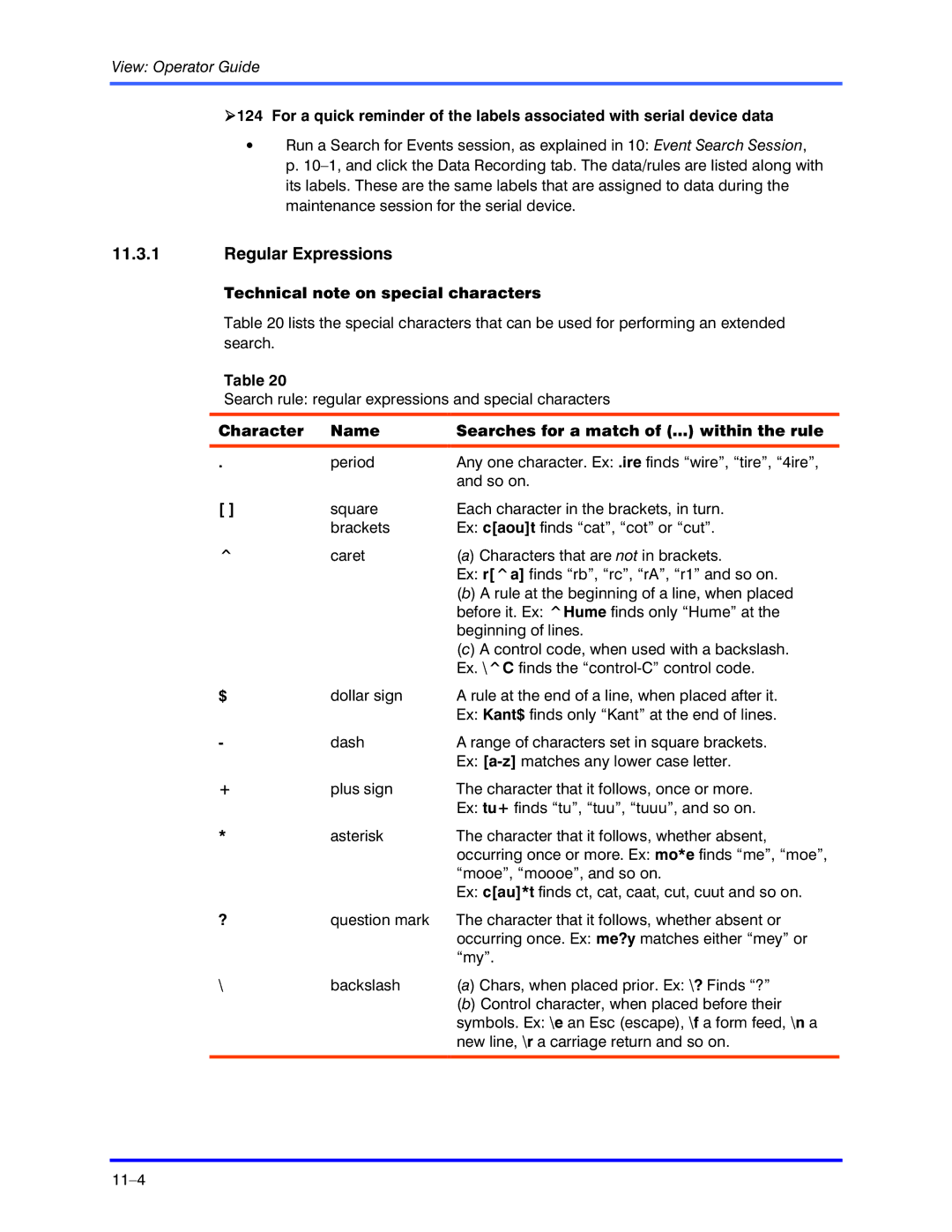
View: Operator Guide
!124 For a quick reminder of the labels associated with serial device data
•Run a Search for Events session, as explained in 10: Event Search Session, p.
11.3.1Regular Expressions
Technical note on special characters
Table 20 lists the special characters that can be used for performing an extended search.
Table 20
Search rule: regular expressions and special characters
Character | Name | Searches for a match of (…) within the rule |
. | period | Any one character. Ex: .ire finds “wire”, “tire”, “4ire”, |
|
| and so on. |
[ ] | square | Each character in the brackets, in turn. |
| brackets | Ex: c[aou]t finds “cat”, “cot” or “cut”. |
^ | caret | (a) Characters that are not in brackets. |
|
| Ex: r[^a] finds “rb”, “rc”, “rA”, “r1” and so on. |
|
| (b) A rule at the beginning of a line, when placed |
|
| before it. Ex: ^Hume finds only “Hume” at the |
|
| beginning of lines. |
|
| (c) A control code, when used with a backslash. |
|
| Ex. \^C finds the |
$ | dollar sign | A rule at the end of a line, when placed after it. |
|
| Ex: Kant$ finds only “Kant” at the end of lines. |
- | dash | A range of characters set in square brackets. |
|
| Ex: |
+ | plus sign | The character that it follows, once or more. |
|
| Ex: tu+ finds “tu”, “tuu”, “tuuu”, and so on. |
* | asterisk | The character that it follows, whether absent, |
|
| occurring once or more. Ex: mo*e finds “me”, “moe”, |
|
| “mooe”, “moooe”, and so on. |
|
| Ex: c[au]*t finds ct, cat, caat, cut, cuut and so on. |
? | question mark | The character that it follows, whether absent or |
|
| occurring once. Ex: me?y matches either “mey” or |
|
| “my”. |
\ | backslash | (a) Chars, when placed prior. Ex: \? Finds “?” |
|
| (b) Control character, when placed before their |
|
| symbols. Ex: \e an Esc (escape), \f a form feed, \n a |
|
| new line, \r a carriage return and so on. |
|
|
|
